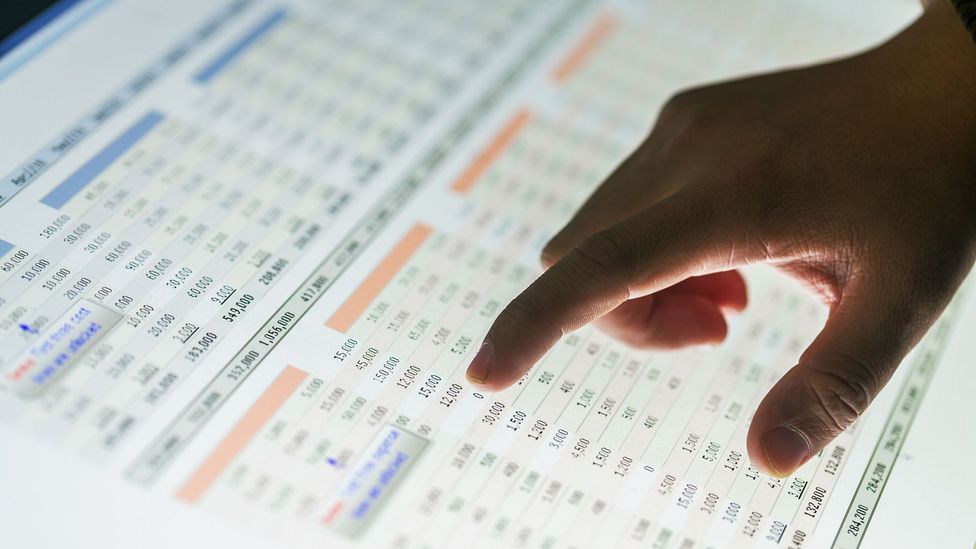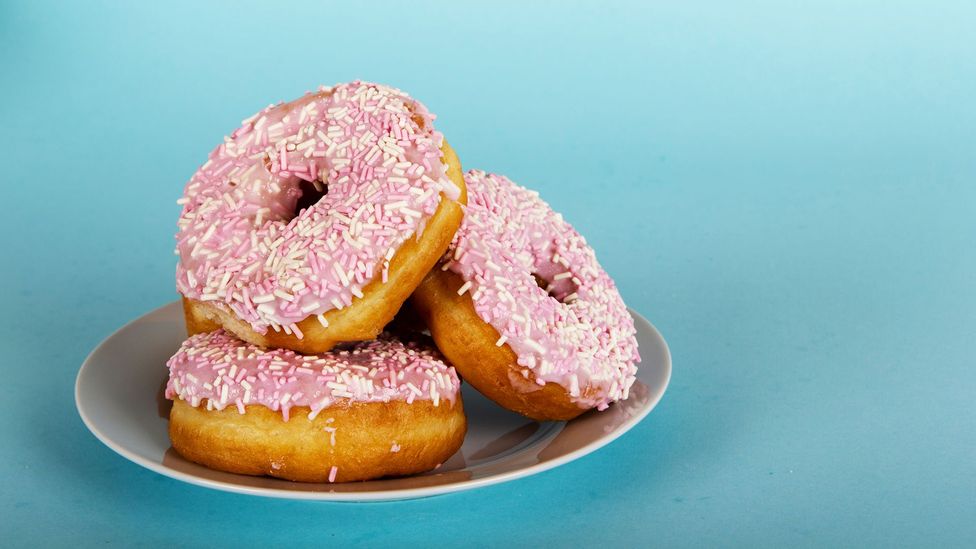How to Know if You Should Trust a Gut Feeling
Should you trust your gut feelings?
(Image credit:
Getty Images
)

Intuition has fallen out of favour in an historic period of rational, belittling thinking. But your emotional responses are not equally fallible as some would accept you lot believe, says neuroscientist Valerie Van Mulukom.
I
Imagine the director of a large company announcing an important conclusion and justifying it with it being based on a gut feeling. This would be met with disbelief – surely important decisions have to be thought over carefully, deliberately and rationally?
Indeed, relying on your intuition by and large has a bad reputation, especially in the Western office of the world where analytic thinking has been steadily promoted over the by decades. Gradually, many take come to think that humans have progressed from relying on primitive, magical and religious thinking to analytic and scientific thinking. Every bit a effect, they view emotions and intuition as fallible, even whimsical, tools.
However, this attitude is based on a myth of cognitive progress. Emotions are actually not impaired responses that e'er need to be ignored or fifty-fifty corrected past rational faculties. They are appraisals of what you take just experienced or thought of – in this sense, they are also a course of information processing.
Intuition or gut feelings are also the result of a lot of processing that happens in the brain. Enquiry suggests that the brain is a big predictive machine, constantlycomparing incoming sensory information and electric current experiences against stored knowledge and memories of previous experiences, andpredicting what will come adjacent. This is described in what scientists call the "predictive processing framework".
You might also similar:
- Is mindfulness as helpful as we recall?
- The benefits of being a loner
- The truth about millennial narcissism?
This ensures that the brain is always as prepared to deal with the current situation every bit optimally equally possible. When a mismatch occurs (something that wasn't predicted), your brain updates its cognitive models.
This matching betwixt prior models (based on past feel) and current experience happens automatically and subconsciously. Intuitions occur when your brain has made a significant match or mismatch (betwixt the cognitive model and electric current experience), but this has not still reached your witting awareness.

Belittling thinking is regarded equally slower, more than logical and rigorous (Credit: Getty Images)
For example, you may be driving on a state route in the night listening to some music, when of a sudden yous take an intuition to bulldoze more to one side of the lane. Every bit you proceed driving, you find that yous have only only missed a massive pothole that could have significantly damaged your car. Y'all are glad you relied on your gut feeling even if you don't know where it came from. In reality, the machine in the far distance in front of you made a like minor swerve (since they are locals and know the road), and you picked up on this without consciously registering it.
When you have a lot of experience in a sure area, the brain has more information to match the current experience against. This makes your intuitions more reliable. This means that, every bit with inventiveness, your intuition can really improve with experience.
In the psychological literature, intuition is oftentimes explained equally ane of two general modes of thinking, along with analytic reasoning. Intuitive thinking is described equally automatic, fast, and subconscious. Analytic thinking, on the other hand, is slow, logical, witting and deliberate.
Many take the division between analytic and intuitive thinking to mean that the two types of processing (or "thinking styles") are opposites, working in a see-saw way. However, a recent meta-analysis – an investigation where the impact of a group of studies is measured – has shown that analytic and intuitive thinking are typically not correlated and could happen at the same fourth dimension.
Then while it is true that one style of thinking likely feels ascendant over the other in any situation – in particular analytic thinking – the subconscious nature of intuitive thinking makes it difficult to determine exactly when it occurs, since and so much happens under the bonnet of our awareness.

We might do some things - like swerving early to avert a pothole - because our subconscious listen has noticed others' actions (Credit: Getty Images)
Indeed, the two thinking styles are in fact complementary and can work in concert – we regularly use them together. Fifty-fifty groundbreaking scientific research may start with intuitive cognition that enables scientists to codify innovative ideas and hypotheses, which tin afterward be validated through rigorous testing and assay.
What'south more, while intuition is seen as sloppy and inaccurate, analytic thinking can be detrimental as well. Studies take shown that overthinking can seriously hinder our decision-making procedure.
In other cases, analytic thinking may simply consist of mail service-hoc justifications or rationalisations of decisions based on intuitive thinking. This occurs for example when we have to explain our decisions in moral dilemmas. This upshot has let some people refer to analytic thinking as the "press secretary" or "inner lawyer" of intuition. Oft we don't know why we make decisions, only we all the same want to have reasons for our decisions.
So should we just rely on our intuition, given that it aids our decision-making? It's complicated. Because intuition relies on evolutionarily older, automatic and fast processing, information technology also falls casualty to misguidances, such as cognitive biases. These are systematic errors in thinking, that tin automatically occur. Despite this, familiarising yourself with common cognitive biases can help you lot spot them in future occasions: there are good tips about how to do that here and here.
Similarly, since fast processing is ancient, it can sometimes be a lilliputian out of date. Consider for instance a plate of donuts. While yous may exist attracted to eat them all, it is unlikely that you need this big an amount of sugars and fats. Notwithstanding, in the hunter-gatherers' fourth dimension, stocking up on energy would take been a wise instinct.

You may want the donuts, but you lot probably don't demand the donuts - an example of how our emotional thoughts tin be hard to resist (Credit: Getty Images)
Thus, for every situation that involves a decision based on your assessment, consider whether your intuition has correctly assessed the situation. Is information technology an evolutionary former or new state of affairs? Does information technology involve cognitive biases? Do y'all have experience or expertise in this type of state of affairs? If it is evolutionary sometime, involves a cognitive bias, and you don't have expertise in it, and then rely on analytic thinking. If non, feel free to trust your intuitive thinking.
Information technology is fourth dimension to stop the witch hunt on intuition, and run across information technology for what information technology is: a fast, automatic, hidden processing style that can provide united states of america with very useful information that deliberate analysing can't. Nosotros need to accept that intuitive and analytic thinking should occur together, and exist weighed up against each other in difficult determination-making situations.
--
This article originally appeared on The Conversation, and is republished under a Creative Commons licence.
Join 800,000+ Future fans past liking usa on Facebook , or follow us on Twitter .
If yous liked this story, sign upwardly for the weekly bbc.com features newsletter , called "If You Only Read 6 Things This Calendar week". A handpicked selection of stories from BBC Future, Earth, Culture, Capital, and Travel, delivered to your inbox every Friday.
Source: https://www.bbc.com/future/article/20180525-should-you-trust-your-gut-feelings
0 Response to "How to Know if You Should Trust a Gut Feeling"
Post a Comment